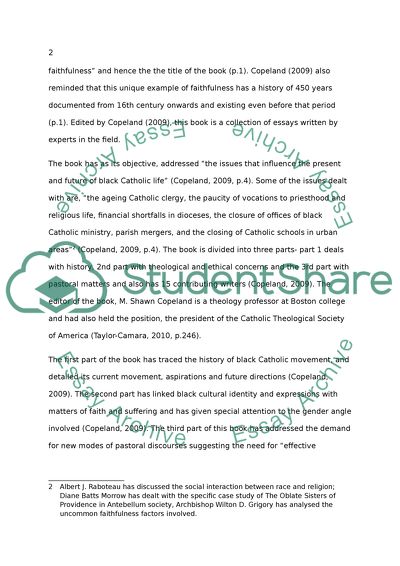Cite this document
(“M. Shawn Copeland, Uncommon Faithfulness: The Black Catholic Research Paper”, n.d.)
M. Shawn Copeland, Uncommon Faithfulness: The Black Catholic Research Paper. Retrieved from https://studentshare.org/religion-and-theology/1461692-m-shawn-copeland-uncommon-faithfulness-the-black
M. Shawn Copeland, Uncommon Faithfulness: The Black Catholic Research Paper. Retrieved from https://studentshare.org/religion-and-theology/1461692-m-shawn-copeland-uncommon-faithfulness-the-black
(M. Shawn Copeland, Uncommon Faithfulness: The Black Catholic Research Paper)
M. Shawn Copeland, Uncommon Faithfulness: The Black Catholic Research Paper. https://studentshare.org/religion-and-theology/1461692-m-shawn-copeland-uncommon-faithfulness-the-black.
M. Shawn Copeland, Uncommon Faithfulness: The Black Catholic Research Paper. https://studentshare.org/religion-and-theology/1461692-m-shawn-copeland-uncommon-faithfulness-the-black.
“M. Shawn Copeland, Uncommon Faithfulness: The Black Catholic Research Paper”, n.d. https://studentshare.org/religion-and-theology/1461692-m-shawn-copeland-uncommon-faithfulness-the-black.


